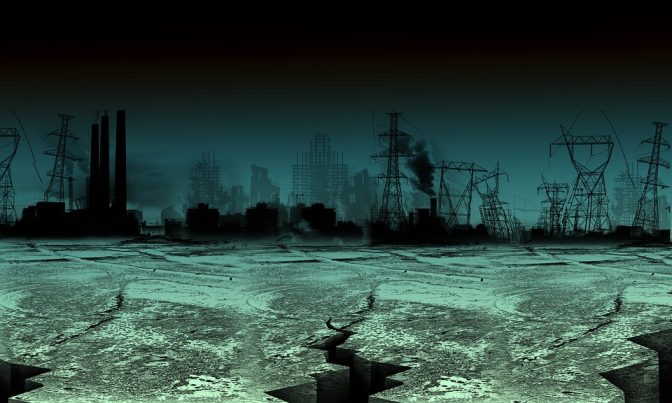Just how much can we depend on the government during a disaster? Not a lot, according to an expert
Wednesday, June 27, 2018 by Vicki Batts
http://www.bugout.news/2018-06-27-just-how-much-can-we-depend-on-the-government-during-a-disaster-not-a-lot.html

How prepared are you for a disaster? If you’re not, and your core thought process is that the government will save you, you could be in for a not-so-pleasant surprise one day.
Time and time again, people have erroneously believed that the government would be there to clean up the mess and offer a life raft when disaster strikes, but the truth is that if you cannot rely on yourself, you can’t expect to rely on anyone else.
Despite the fact that prepping is simply an act of common sense, the average person views preppers as “crazy conspiracy theorists.” While society as a whole may believe in a government-run ray of hope, such a high level of dependence on any organization ought to be a cause for concern.
Just as supporters of the Second Amendment get slammed as “crazy” for even suggesting that modern-day government may devolve into tyranny, preppers are often labeled as “nut jobs” by the mainstream media. Is this because anyone who believes they can’t depend on the government is nuts? Or perhaps, more likely, it’s because advocating for self-reliance goes against the pro-government dogma.
Disaster strikes of its own accord
The reality is that in disaster situations, people need to be able to rely on themselves. Even if it’s just a case of water, a first-aid kit and some shelf-stable food, people need to be prepared for the kinds of situations they may find themselves in. For example, natural disasters like blizzards, earthquakes, hurricanes and tornadoes may leave you and your family without access to the luxuries of modern life. In disaster conditions, there is no telling how long it will take for help to arrive. There are many reasons to be more self-reliant.
Even the best laid plans at the behest of the government are still subject to the whims of Mother Nature. But it’s not just Mother Nature we have to worry about.
Natural disasters may be the most common sorts of problems you see the government respond to, but what about more severe issues, like war or EMP attacks? In the event of “high-level disasters,” expert Bob Rodgers cautions that protecting and helping citizens will no longer be a priority for the government.
The government will protect itself first
Rodgers contends that under such circumstances “the government’s number one priority will be to protect its own existence.”
“The government’s first move has been and will always be to make sure that it can function tomorrow. Your lives, your family’s lives, your community’s lives, and even your state’s lives all come in second, third, fourth, or fifth place when compared against the almighty mandate of government survival,” he continues.
Rodgers explains further that after protecting its own interests, government’s second priority will be to neutralize threats – at any cost. This is where martial law could set in, the expert posits.
The third priority would be to prevent total economic collapse and maintain some semblance of the status quo. Keeping people in line will ultimately come before actually helping them, as ensuring a sense of order for the masses will be more important than individual lives. As you can see, saving the lives of citizens is not anywhere near the top of the totem pole.
As Rodgers notes, the government can’t even maintain prosperity and order in cities under normal circumstances – a fact which does not invite confidence in its ability to meaningfully provide aid to the public in a disaster scenario.
When all of this is considered together with the government’s repeated failures at living up to society’s expected response in disaster situations, it becomes even more obvious that self-reliance and personal preparedness are key to making the unknown more bearable.
Just because you can’t depend on the government doesn’t mean you can’t rely on yourself. Learn more about what you can do to be prepared for anything at Preparedness.news.
Sources include:
Tagged Under: Tags: chaos, Collapse, disaster, food independence, government, off grid, preparedness, prepper, prepping, self-reliance, SHTF, survival food, survival skills, sustainable living

